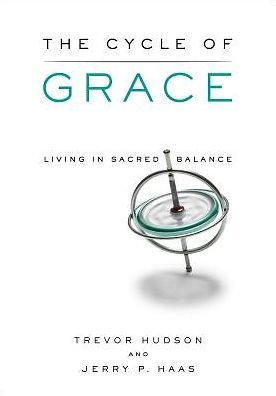I have always loved the Sermon on the Mount. Some say it was a collection of sermons or maybe just the same sermon delivered more than once and summarized. Either way, I think it is the core of Jesus’ teaching on how to live. Some have also described the Sermon on the Mount as reforming the Torah. Israel started with 12 tribes–Jesus began with 12 disciples when He set out to reform the world into a new type of kingdom. The Sermon on the Mount is definitely counter-cultural and somewhat revolutionary.
For some reason, as I began to study the Sermon on the Mount this time, I kind of got hung up on the first beatitude. I don’t know if it’s because a friend of mine told me to “marinate” more, which I took to mean slow down a little bit. This first beatitudes states:
Blessed are the poor in spirit, for theirs is the kingdom of heaven (Matthew 5:3)
Makarios which is usually translated blessed can mean several things: blessed, happy, fortunate, etc. The word I like best is “fortunate.” The person is fortunate who possesses these qualities. Jesus emphasizes the quality of being poor. This word means destitute, completely lacking resources, helpless as a beggar, lacking, or abject. So, this fortunate person is completely abject when it comes to spiritual things. See what I mean about counter-cultural? The Kingdom of Heaven is for that person or those persons.
It might help us understand this passage if we realize who Jesus was talking to. The simple answer is — everyone! Jesus was talking to his disciples, but everyone else was listening indirectly. According to a previous verse (Matthew 4:25), there were people from Galilee, Jerusalem, Judea, the Decapolis (think Gentile) and even beyond the Jordan coming to hear Jesus speak. There were the religious, the disciples, the Gentiles, the losers and the winners—pretty much all of humanity was represented. This was not just a secret handshake meeting for the disciples.
That is important because when a verse mentions the kingdom of heaven or heaven or eternity, our first question is “who is in?” I believe that’s the wrong question. We ask this question because we want to exclude those that don’t belong or qualify and determine what my tribes needs to do to be in the club–who is God for?

Just for the sake of simplicity, let’s go with that question. The first group of people to consider are those that don’t know. Wouldn’t those that are excluded, left out or ignored be considered poor in spirit? What about those that are mentally incapable or limited, would they be considered poor in spirit? I think the Kingdom of Heaven is for people like them.
The second group of people to consider might be the bad people. Every tribe and nation has a unique way to identify the bad people. Have you ever considered that those we call “bad guys” when we are at war probably use similar adjectives to describe us. We are the “bad guys” to them. We could get super spiritual and start listing our criteria that we use to determine who is the worst, but honestly it is usually just a bias that works in our favor. We’re all bad! Jesus didn’t exclude the “bad” people–He sought them out (think demoniac). He didn’t bunker down and throw stones at them–He actually went to them and showed us that the kingdom of heaven is for those type of people–the poor in spirit.
Another group that is much more acceptable to religious tribes are the humble. This is an easy one because we all know that God honors the humble. We know that when we are humble, God lifts us up (exalts us). This is the easiest category of people to accept as being in the club because they are voluntarily choosing to be humble – that is so honorable, and at the same time, so hard to do! This leads me to the next group.
The Bible also tells us that when we are prideful, God inevitably humbles us. I often wonder if it matters how I get there–I mean I know it’s probably less painful to go voluntarily, but it seems that God gets us there one way or another. Even when we are confused about our status and think we are “rich” and “need nothing”, the book of Revelation states that our true situation is “pitiful, poor, blind and naked” (Revelation 3:17). There is that word again–poor! Even the proud and confused are, in reality, poor in spirit.
The last group that I considered were those who are not on the inside–those in different tribes. We should be careful with our nationalism. In the United States, we are so patriotic that we often associate our spirituality with our politics and pride for our nation. God doesn’t have special fondness for Americans or any other nation. He is especially fond of all nations, creeds, tribes and people groups.
Whatever our formula for separating ourselves, it is usually self-serving and biased. In many ways, maybe the poor in spirit is all of us. God is for us! All of us! Isn’t that at least part of the good news?
God is all in! I think it’s more than important that we understand we are accepted!
Recently a friend shared with me an illustration called “The Cycle of Grace.” It was developed to address the problem of missionary burn out in India.
The authors describe the inputs and outputs in Jesus’ life. Jesus didn’t just produce miracles and preach sermons–he also took time to receive input through prayer, contemplation and rest. The authors used the following model to illustrate this fact.

The missionaries that were “burning out” were spending the majority of their time focused on significance and fruitfulness (the outputs) and very little time with acceptance and sustenance (the inputs). Isn’t this like so many of us? All of our metrics are generally geared toward output. How much are we producing? How many people are in church? Results, production, impact – this is how we measure success! Isn’t God for us when we produce results?
The way I understand sustenance is to refer to a model that my friends, Dusty and Erin Stanczyk, employ in their plant-based nutrition business. They call their project, “Eat Move Rest.” It makes a lot of sense – if we would eat better, move more and rest more effectively, we would all be healthier, happier and perhaps more spiritually sound. Taking time to pray, meditate or, simply to relax is vital to our well being. We know that, but we just downgrade those things to not as important and they often do no get addressed. Pastors are notorious for totally ignoring this necessary input.
I want to suggest that the first input, acceptance, is probably the most important and takes us back to the first beatitude. Even Jesus had to take time to hear from heaven, “This is my Son, whom I love; with him I am well pleased.” It is imperative that we also hear that message. God is for us! The kingdom of heaven is for us! We are accepted. It may be the most important and primary issue to settle. Before goal setting and planning–even before we sustain ourselves–we must know that we are accepted!
I would like to give you a step-by-step approach to gain the input you need in your life. But, formulas never really work for me. I either bargain with them or forget the equation or just lose interest. It’s not even as simple as the diagram above (as good as that is). It’s about a relationship – and relationships are messy and complicated.
May I suggest simply starting over OFTEN by taking enough time to realize that we are accepted and that God is for us? If Jesus needed that input, I’m sure we do too!
Blessings,
Karl
-
Message me at any time if you have questions: karl@karlscoaching.com
-
Find me on Twitter
-
Subscribe to Karl’s Coaching Podcasts
-
Podcasts on YouTube





Leave a comment